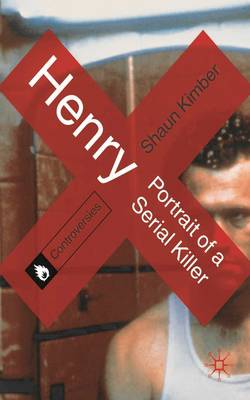
- Retrait gratuit dans votre magasin Club
- 7.000.000 titres dans notre catalogue
- Payer en toute sécurité
- Toujours un magasin près de chez vous
- Retrait gratuit dans votre magasin Club
- 7.000.0000 titres dans notre catalogue
- Payer en toute sécurité
- Toujours un magasin près de chez vous
30,95 €
+ 61 points
Description
Henry: Portrait of a Serial Killer (1986) is precisely that: a cold-eyed character study based on the crimes of Henry Lee Lucas, who was convicted of eleven murders in the 1980s. Director John McNaughton presents an unflinching portrayal of the semi-fictional Henry's crimes. The film proved immensely controversial, notably in the UK, where it confounded the British Board of Film Classification, which went so far as to re-edit a crucial scene, in addition to cutting others.
Shaun Kimber's examination of the controversies surrounding Henry considers the history and implications of censors' decisions about the film on both sides of the Atlantic. Taking account of the views of audiences, critics and academics, both at the time the film was released and in the years since, Kimber also looks at the changing political, social and economic contexts within which the film was produced and has subsequently circulated. Henry continues to represent a key film within the horror genre, the history of censorship, and the study of film violence. Kimber's account of the film's production and its fortunes in the marketplace provides a fascinating case study of film censorship in action, and offers a sustained and wide-ranging analysis of what remains one of the most disturbing films ever made. 'An excellent in-depth analysis... Kimber effectively combines close readings of key scenes with detailed consideration of the history of different versions of Henry and its various engagements with critics, supporters and regulatory authorities.'Geoff King, Brunel University Shaun Kimber is a Senior Lecturer in the Media School at Bournemouth University.
Spécifications
Parties prenantes
- Auteur(s) :
- Editeur:
Contenu
- Nombre de pages :
- 168
- Langue:
- Anglais
- Collection :
- Tome:
- n° 5
Caractéristiques
- EAN:
- 9780230297982
- Date de parution :
- 12-09-11
- Format:
- Livre broché
- Format numérique:
- Trade paperback (VS)
- Dimensions :
- 135 mm x 191 mm
- Poids :
- 281 g

Les avis
Nous publions uniquement les avis qui respectent les conditions requises. Consultez nos conditions pour les avis.






